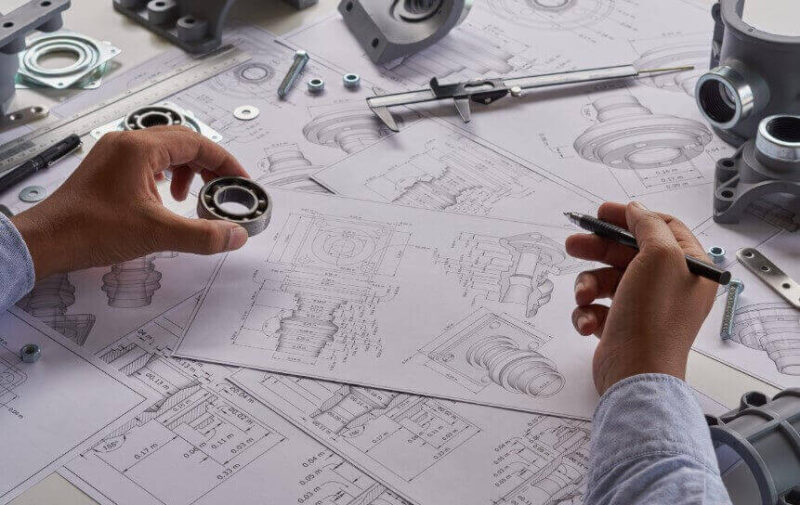Stepping into the professional arena of mechanical engineering brings forth exciting challenges and unparalleled learning opportunities, notably through the quintessential job interview. A moment where your academic prowess meets real-world application, the interview gauges your technical competency, problem-solving aptitude, and interpersonal skills, crafting a comprehensive view of your fit within the organization.
The path leading to this pivotal moment commences with a meticulously curated resume. To set the foundation, get started to build your mechanical engineer resume to make a good first impression, tailored for emerging mechanical engineers. Following this, you can start preparing for your interview as per the following pointers:
1. Know Your Basics
Understanding the core principles of mechanical engineering is fundamental to navigating through the technical segments of your interview. A profound grasp of concepts, ranging from thermodynamics to fluid mechanics, coupled with the ability to apply theoretical knowledge to practical scenarios, is paramount. For example, you might be quizzed on elucidating the Carnot cycle or explaining stress-strain curves in materials.
2. Conduct a Company Research
Deep-diving into the company’s ethos, product lines, and industry presence prepares you for bespoke responses that resonate with the interviewer. Your knowledge about the company’s latest projects, technological advancements, and even challenges reflects your genuine interest and proactive mindset. Be ready to articulate how you, with your skills and values, align with the company’s mission and can be an asset to specific projects.
3. Prepare for Behavioral Questions
Behavioral questions delve into your past experiences to predict future performance, exploring realms like teamwork, leadership, and conflict resolution. Employ the STAR (Situation, Task, Action, Result) method to structurally articulate your experiences. For instance, prepare to discuss a scenario where your proactive leadership drove a stalled project to fruition or mitigated team discord.
4. Develop Your “ME” Stories
Crafting captivating narratives about your academic and project journeys not only showcases your technical prowess but also highlights your communication skills. A ‘ME’ story isn’t merely a list of achievements but a woven narrative that underscores your journey, challenges, and learnings. Include anecdotes from projects that demonstrated innovative solutions or instances where your initiatives led to enhanced efficiency.
5. Get Acquainted with Common Technical Questions
Technical questions test your applied knowledge and problem-solving skills in real-world engineering scenarios. Be ready to answer questions like explaining the mechanics behind refrigeration cycles or the methodology for conducting finite element analysis in a particular situation, ensuring your responses reflect both theoretical and practical insights.
6. Cultivate a Professional Demeanor
Your attire, body language, and verbal communication collectively forge your professional demeanor, providing a non-verbal insight into your personality and work ethic. For example, a crisp, formal shirt paired with polished shoes exudes professionalism, while maintaining steady eye contact and utilizing appreciative nods accentuates attentive communication.
7. Prepare Questions for the Interviewer
Your inquiries for the interviewer reflect your aspirations and considerations for your career trajectory. Pose questions that unravel your eagerness to contribute and grow within the company, such as asking about the pathways for professional development within the organization or how the company adapts to evolving technological trends in mechanical engineering.
Post-Interview Protocol
Navigating through the post-interview phase with politeness and reflection fosters potential future interactions and continuous self-improvement. A succinct thank-you email, emphasizing your continued interest and appreciation for the opportunity, leaves a positive impression. Concurrently, evaluating your performance, pinpointing strengths, and areas for enhancement, propels your preparation for subsequent opportunities.
Embarking on your professional journey in mechanical engineering encompasses more than technical expertise. It’s a confluence of knowledge, interpersonal skills, and strategic preparation, all of which steer your path towards burgeoning opportunities and career success. May this guide be your companion, aiding you in navigating through interviews with confidence and finesse, propelling you towards your envisioned career horizon.






